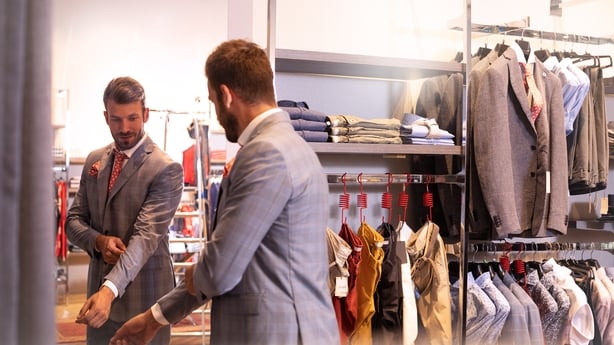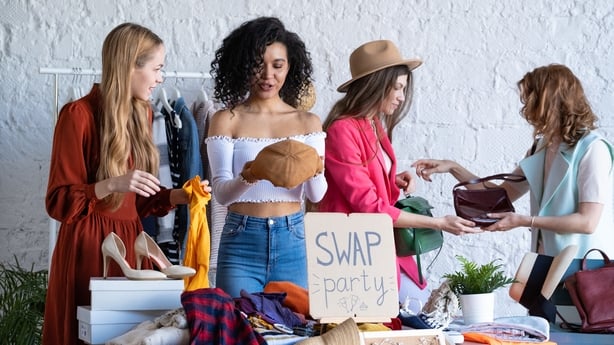Switching half our clothes in each of our wardrobes to pre-loved could prevent carbon emissions equivalent to those produced by 261,000 flights from London to Greece, Oxfam have suggested.
So what is the allure of buying brand new clothes, when we know it’s worse for the environment?
Well, there’s a reason we refer to shopping as ‘retail therapy’. Whether it’s a going-out top grabbed on your lunch break or a designer bag you’ve had your eye on for months, fashion acquisitions in particular have the power to lift your mood, thanks to the chemical dopamine.
"Dopamine is known as the reward agent," said cognitive psychologist and business consultant Dr Carolyn Mair, author of The Psychology of Fashion.
"We produce more dopamine when we’re on the hunt for something that’s going to give us a positive outcome or make the situation we’re in at the moment more easy to bear.
"It can become an addiction, certainly, because the same neurotransmitters and same behaviours are involved."

And buying an on-trend outfit provides more of a thrill than loading up a supermarket trolley because it satisfies our desire to fit in.
"It’s a fundamental psychological drive that we want to belong to communities – part of the way we do that is through the way we dress," said Mair – who is working with Oxfam for the launch of its Second Hand September campaign – but it’s a double-edged sword.
"Fashion can do wonders for us in terms of highlighting or concealing parts of our bodies that we love or don’t love so much," Mair continued.
"But it can also be quite damaging when we feel that we have to join in with other people’s ideas about what’s fashionable."
Peer pressure can have a powerful effect, as can the boredom.
"We get bored with what we’ve got, and we’re also very much influenced by fashion trends, celebrities, social media and so on," said Mair.
"There’s quite often a temptation to join in with those trends and be part of that… It can be quite difficult for people to resist that."

Even, that is, when we know that the fashion industry is hugely detrimental to the environment in terms of carbon emissions and unwanted garments going to landfill.
"I think the huge majority of people already know [the environmental impact]," said Mair, and yet fast fashion brands continue to churn out millions of items a year and consumers lap them up.
Instead of telling people to quit clothes shopping altogether, she said to ask ourselves: "How can we get the pleasure from fashion by not buying brand new, but by buying something else?"
That’s why she encourages fashion fans to make more sustainable choices, starting with ‘shopping your wardrobe’. "You can make something you’ve already got feel new by up-cycling it or changing it a little bit, if you’re creative. We can swap with friends, because then it’s ‘new to me’."
Hunting on sites like Vinted, eBay or Depop is a great way of "finding treasures so that’s giving us the dopamine hit and we’re saving money", she added.

If the proceeds are going to a good cause you’ll get an extra altruistic boost as well.
"We know from positive psychology that one of the best ways to feel good about ourselves is to do good for someone else," said Mair.
"Whenever we buy secondhand from a charity shop we know that our money is going towards doing good."
She’s also a big fan of rental sites that offer premium pieces to hire for a fraction of their retail price.
"Rental sites are great, particularly for special occasions when we think ‘I need to buy something new,’ because that’s the social norm," she said.
"Rental is a great way to keep an item of clothing in use for longer so it’s worn by more people and looked after."
Read more: Meet the Irish women bringing fashion rentals to Gen Z
